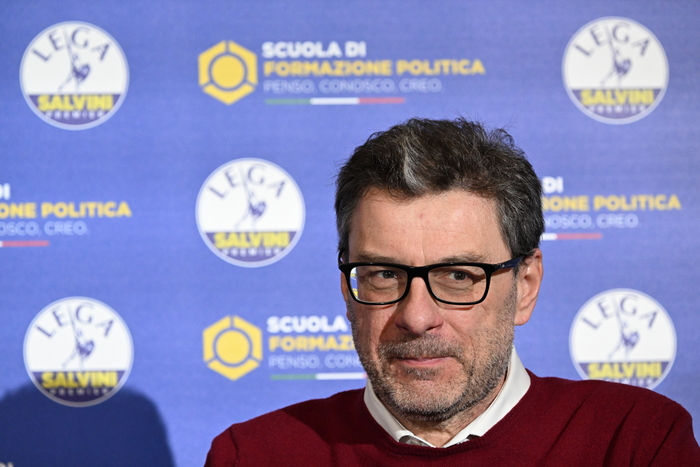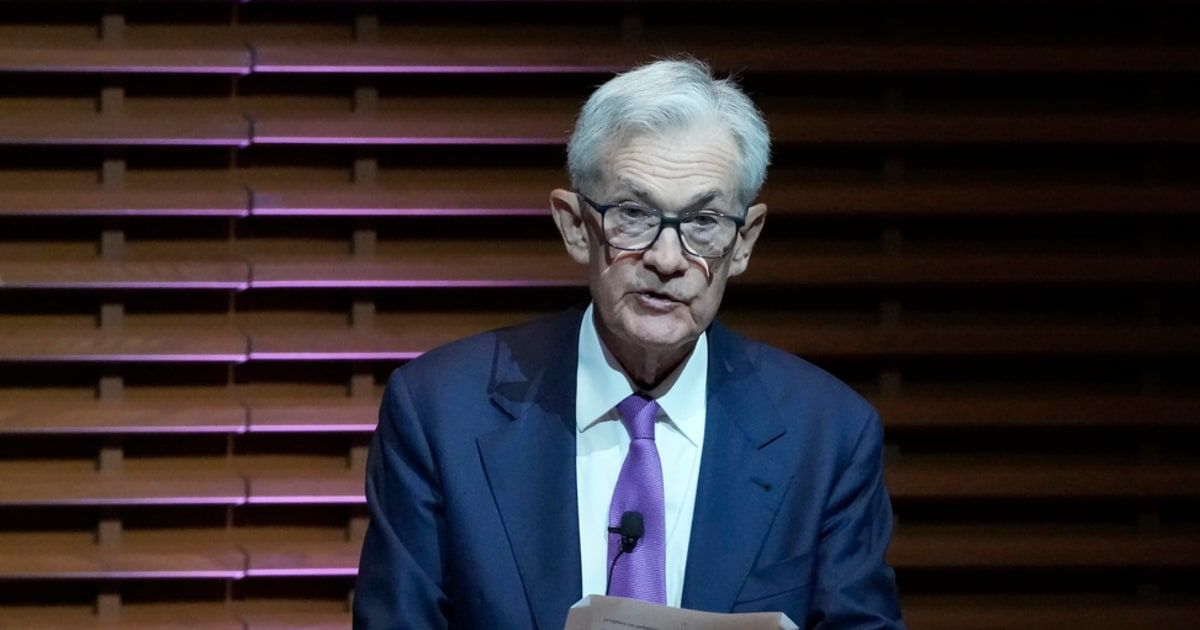Enlarge image
ECB headquarters in Frankfurt am Main: Driven by German desires
Photo: Daniel Kubirski / picture alliance
Europe's currency watchdogs have tried twice in the past decade and a half since the financial crisis to raise the historically low interest rates again.
Both times the spell didn't last long.
On the contrary.
In the summer of 2008, the central bankers eagerly raised their interest rates out of alleged fear of inflation – long after the great financial crash was approaching and the fear of inflation quickly seemed absurd.
It was similar in the summer of 2011 – the euro guardians let interest rates rise twice while the euro crisis was still smoldering.
And thus contributed to the ensuing escalation.
A few weeks later, in 2008, came the turning point of the turning point - in the midst of the big crash, the euro guardians also had to lower their interest rates again.
Something similar in 2011 – when the correction followed in November in the face of escalating euro turbulence.
So much for turning times.
What went wrong then seems at first glance to be quite different this time.
At that time it was about comparatively delicate inflation risks, now inflation is at eight percent.
Clear case for higher interest rates?
Not quite as compelling as it might seem.
As then, the interest rate hike comes at a time when crises threaten to escalate – only this time due to the war and speculation.
It is harder than ever before to justify how and why higher interest rates are now supposed to help against inflation in the euro area.
It cannot be ruled out that the turning point will be followed by a turning point in the not too distant future.
This week's alarm meeting of the euro watchdogs could only have been a first warning signal.
Although the interest rate hike was not reversed, safeguards were announced so that speculators would not be able to indiscriminately inflate interest rates for countries like Italy.
A touch of turning point.
more on the subject
Fear of a new euro crisis: Why the ECB is helping Italy againBy Stefan Kaiser
How shaky the arguments beyond monetary policy quackery at mom-and-pop level can be seen from the somewhat confused local comments on the ECB's announcement of higher interest rates last week.
Finally.
Way too late.
And far too little, they said.
Whereby the corresponding justification and explanation of the effects then seemed to quickly lose their logical stringency when it was necessary to explain to the common non-central bank experts how exactly the higher interest rates are now supposed to lower inflation.
Well, of course it takes time.
Somehow.
Which, at least at first glance, cannot be refuted.
Overheating bullshit
Unlike the somewhat hopeless attempts, according to which high interest rates now ensure that loans become more expensive and people no longer spend and invest as much money.
Which is a good thing when such an economy over...uh...overheats.
Because the government simply caused too much consumption with all the aid packages.
Now this is no joke.
That was read and heard.
Nonsense.
If something isn't overheating right now, it's demand and the economy in the euro area.
And not in Germany either.
Too much consumption: At the beginning of 2022, private household spending was a good three percent lower than before the pandemic - to chatter about overheating is just as absurd as to suggest that it would somehow be good if less investment was made.
Even before the war in Ukraine, the economy was investing almost ten percent less in equipment than before the pandemic.
Tendency since the beginning of the war: falling.
In April, a good three percent fewer orders for domestic capital goods were received than the average for the first quarter.
Similar findings in terms of wage pressure: the wage costs per sales unit at the beginning of 2022 were almost three percent lower than the average for 2020. Which of course does not guarantee that it will stay that way now.
Clear.
If something is absurd, then the thought of making investments that are already weakening anyhow more expensive and less through higher interest rates.
At a time when companies and the state urgently need to invest more in order to convert to a climate-neutral economy as soon as possible - or to become less dependent on old energy;
or to adapt to the increasing shortage of skilled workers.
There is an urgent need to invest more in new technologies, e-mobility or hydrogen - not less.
All of this is also (hopefully) known to the experts among the rate hike fans.
Which is why, at a higher level, it is then also raved about that the ECB should be more concerned with convincing the whole world with demonstrative zest for action that there will soon be no more inflation.
Expectation management in the seminar.
What may impress analysts in the financial markets.
The question is whether the assembler or baker bases his inflation expectations on the key interest rates of the European Central Bank.
Or the unions.
Especially when the argumentation according to classical teaching seems rather shaky - see above.
Totally different inflation
The problem in 2022 is still quite clearly a special kind of inflation.
It just doesn't work, as the textbooks say for the normal case, with an economy that is overheating across the board - which can also be slowed down by higher interest rates across the board.
Classic business cycle.
Now a shock in energy prices is the main cause - and as a result of the pandemic, a number of supply bottlenecks that tempt companies to raise prices when customers have no alternative (read more about this here).
According to evaluations by the economist Philippa Sigl-Glöckner from the Future Department, almost all of the prices that rise are those that – as is the case with many foods – require a lot of energy to produce, i.e. that correlate with the ups and downs in energy prices.
Which suggests that this is also where the core lies.
Higher interest rates are of terribly little help against all of this.
You can turn this back and forth as often as you like.
If it were to really work and be carried through, the correspondingly catastrophic effect on the economy would have such dramatic side effects on large parts of the already ailing economy that it would not be reasonable to justify it.
Unless you believe in esotericism.
The drama is that poorly justifiable interest rate hikes harbor several risks.
The first risk has already been indicated in the past few days: In an unstable situation, interest rate increases feed the fears of investors in the euro area - and fear then feeds fears, as Berenberg chief economist Holger Schmieding says.
With the result that, without any real reason, investors are fleeing Italian bonds and interest rates there are rising rapidly - although in the real world there is no reason to assess Italy's situation any differently now.
As a reminder, it's only been a few months since articles were written every other day in this country praising the new Italian miracle under Mario Draghi.
The country has not been that stable politically for a long time.
The markets are turning their own wheels. And the ECB has to call emergency meetings
The second risk is that the hoped-for signaling effect could be turned into the opposite – if interest rates rise but inflation does not subside at all, because many consumers only feel the gas price shock when the annual bills are still due;
or prices shoot up again due to oil or gas import failures.
It doesn't matter where the interest rate is.
Worse still, if the economy continues to slump under the pressure of higher prices and interest rates and ongoing uncertainty, sooner or later the moment will come when it's better not to raise interest rates any further - lest it make matters worse.
As in 2008 and 2011. See above.
There's something impressive about how central bankers let themselves be carried away so much in just a few weeks that they suddenly, as a matter of course, suddenly raised interest rates that they hadn't wanted to raise before.
Although the effect is so delicate.
The economic situation in the euro zone is different than in the USA, where there is a much greater risk of overheating.
And how one can then also rumble that the interest rate hike announced by the ECB was far too little - and that interest rates would have to rise much more.
It's no use if it doesn't help.
And it doesn't change the basic wisdom that when the economy improves, higher interest rates will of course be desirable again.
But now it's a matter of stopping inflation, which was more likely triggered by cost shocks, in an already weakening economy.
And other means are needed for this - whether gas price caps or (better) tank discounts or falling VAT: everything that not only lowers inflation but also supports the economy.
And everything that contributes in the long term to ensuring that there are no more bottlenecks - i.e. more capacity for renewable energies, electric cars, better work, rail connections, schools, universities, hospitals.
Which is better achieved with more investment than without.
Otherwise the ECB threatens to go down in history as the central bank that – under very strong German pressure to raise interest rates without fail – had to constantly turn around before they had really started.
Whether 2008, 2011 or 2022.




/cloudfront-eu-central-1.images.arcpublishing.com/prisa/K63BQCT5FHKKXUWRSFYE4KBNFI.jpg)




